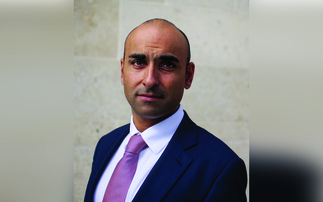Let's face it; MiFID II is never going to make the shortlist for 'The Booker Prize' is it? It's a horribly complex read that at times can be just as frustrating as it is exasperating. Yet the further you delve into it, the more it feels like you're lifting the lid on Pandora's Box.
The new disclosure requirements on costs and charges are a great example of this. Yes, it's all very prescriptive stuff in terms of ‘the what' and ‘the how'. We are told to aggregate this data, break down these costs, and show the impact this has had on performance and so on. The hard bit, however, is getting good quality data to standardise the process and that is an issue which is only the tip of the iceberg.
But perhaps the most intriguing bit of MiFID II is within the product governance (PROD) rules on target market. We know that manufacturers (providers and asset managers) have to define the target market for their products. We also know that distributors (advisers and platforms) also have to define their own target market for the products they distribute based on what they receive from the manufacturer and their own client information. PROD 3.3.12 takes this further and explains that these should be identified at an extremely granular level.
This naturally leads to discussions around identifying segments for your clients and probably sub-segments as well. We're less than two years into this post-PROD world but we're starting to see trends emerge in segmentation approaches. Segmenting by financial life stages appears to be the most popular so far but it's segmenting by occupation which intrigues me the most. I've spoken to a few adviser firms who've adopted this approach and grouped together employed accumulators, senior executives and doctors and then sub-segmented these groups based on their overall needs.
I've even heard of segmenting farmers, yes farmers. This is a really interesting one because we know farmers have different ways of operating and that lends itself beautifully to unique sub-segments. The Department for Environment, Food and Rural Affairs (DEFRA) actually identified five sub-segments for farmers based on behavioural type in some research they carried out all the way back in 2008. The five sub-segments consisted of the following:
1. Custodians - where farming is a way of life.
2. Lifestyle choice - where farming is not the main source of income.
3. Pragmatists - balanced approach to making a living.
4. Modern family business - ensuring succession to a viable business.
5. Challenged enterprises - isolation is an issue.
If you do have a large proportion of farmers in your client bank, these could quite easily be your sub-segments. For the purpose of complying with PROD, you could start with these sub-segments and build outwards selecting the most appropriate investment option, platform and type of advice service to best meet the needs of each band.
There is no hard rule within PROD about how you go about segmenting your client bank. You just need to evidence you have a structured client-centric process in place to deliver tailored advice, products and services to each of your specific client segment. And if you do have any farmers on your book, you can thank DEFRA.










